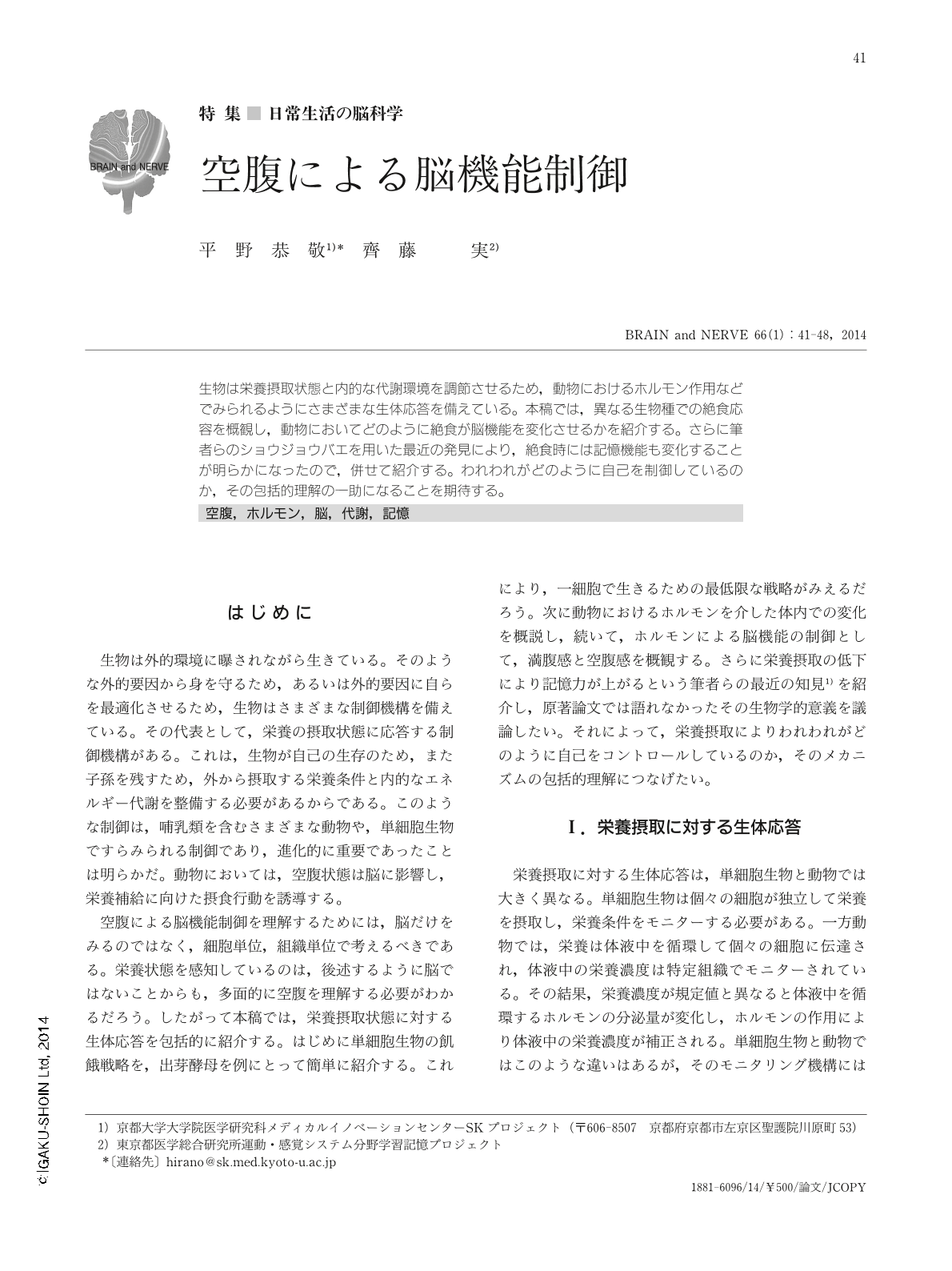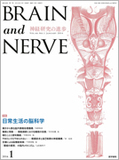Japanese
English
- 有料閲覧
- Abstract 文献概要
- 1ページ目 Look Inside
- 参考文献 Reference
生物は栄養摂取状態と内的な代謝環境を調節させるため,動物におけるホルモン作用などでみられるようにさまざまな生体応答を備えている。本稿では,異なる生物種での絶食応容を概観し,動物においてどのように絶食が脳機能を変化させるかを紹介する。さらに筆者らのショウジョウバエを用いた最近の発見により,絶食時には記憶機能も変化することが明らかになったので,併せて紹介する。われわれがどのように自己を制御しているのか,その包括的理解の一助になることを期待する。
Abstract
All organisms must obtain nutrition in order to survive and produce their progeny. In the natural environment, however, adequate nutrition or food is not always available. Thus, all organisms are equipped with mechanisms by which their nutritional condition alters their internal activities. In animals, the loss of nutritional intake (fasting) alters not only metabolism, but also behavior in a manner dependent on hormones such as insulin, glucagon, leptin, and ghrelin. As a result, animals are able to maintain their blood sugar level, and are motivated to crave food upon fasting. Moreover, our recent study revealed a novel role of hunger, which facilitates long-term memory (LTM) formation, and its molecular mechanism in the fruit fly, Drosophila. Here, we review the overall effect of fasting, and how fasting affects brain function. I then introduce our finding in which mild fasting facilitates LTM formation, and discuss its biological significance.

Copyright © 2014, Igaku-Shoin Ltd. All rights reserved.


